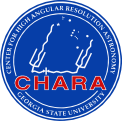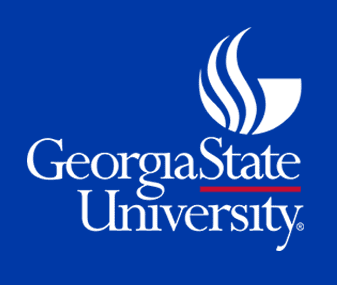The Center for High Angular Resolution Astronomy (CHARA) at Georgia State University (GSU) is seeking applicants for two positions: an Optical Laboratory Scientist and a Telescope Systems Scientist. CHARA operates the CHARA Array, an optical/IR, long baseline interferometer located at Mount Wilson Observatory. It is the most powerful instrument of its kind for making images of distant stars. The Array currently consists of six 1-meter aperture telescopes with separations from 30 to 330 meters that relay collimated beams through evacuated tubes to a central beam synthesis facility. An adaptive optics system at each telescope corrects for atmospheric distortion while a second adaptive optics system in the lab corrects for non-common path errors. A laser metrology delay line system corrects for path length differences before the light is sent to an optical laboratory with five beam combiners with differing wavelength coverage and spectral resolution. Plans are in place for a seventh mobile telescope that will work with the others through fiber optics relay.
Optical Laboratory Scientist
We are seeking an individual to lead the instrumentation program in our beam combining laboratory and delay line building. This will include, but is not restricted to, overseeing, performing, and improving the regular optical alignments and configurations as part of our observing program, working on the development of new instruments, and overseeing the training of other staff members on day to day alignment procedures. The successful applicant will need professional experience in working with electro-optics and in particular systems associated with stellar interferometry, such as precision metrology, integrated optics, optical fibers, adaptive optics, and servo-control systems. The workplace is the Mount Wilson Observatory north of Los Angeles, California.
Applicants should have the following basic qualifications: 1) PhD (or BS with equivalent years experience) in astronomy, physics, engineering or a closely related field; 2) significant expertise in optics with work experience in one or more of the following areas: optical devices, fiber optics, mechanical and electrical design, cryogenic cooling, alignment, and computer control of instruments; 3) evidence of the ability to work in a collaborative effort; 4) a working knowledge of computer controlled systems.
Telescope Systems Scientist
We are searching for an individual to lead our instrumentation development and maintenance program. This includes, but is not restricted to, working with our telescopes and their adaptive optics systems, their enclosures, and the beam relay systems. The successful applicant will also be involved in the electro-optical systems inside the laboratory and the design and development of new instruments. Those with experience in development of optical instrumentation for stellar interferometry are particularly encouraged to apply for this position. The workplace is the Mount Wilson Observatory north of Los Angeles, California.
Applicants should have the following basic qualifications: 1) Ph.D. (or BS with equivalent years experience) in astronomy, physics, engineering, or closely related field; 2) significant expertise in electro-optical instrumentation with work experience in one or more of the following areas: telescopes, adaptive optics, fiber optics, optical design, mechanical design and fabrication, electronics, and computer control of instruments; 3) evidence of the ability to work in a collaborative effort; 4) a working knowledge of computer-controlled systems.
Apply for the Jobs
Please apply online for these positions:
Step 1: GSU Job Website: https://employment.gsu.edu/
Step 2: Select "External Applicants"
Step 3: Enter job number:
- 21000398: "Optical Laboratory Scientist Position #21000398"
- 21000443: "Telescope Systems Scientist Position #21000443"
Step 4: Click Apply Online (if a new user, create a username and password)
Step 5: Complete the entire application and upload all requested documentation to the online application.
Applications should include: 1) CV; 2) Statement of the candidate's professional interests and accomplishments, and how they relate to the CHARA Array; 3) Contact information for at least three references.
Applications received by May 16, 2021 will receive full consideration. An offer of employment will be conditional on background verification.
Questions regarding the positions can be addressed to Dr. Theo ten Brummelaar (
Georgia State University is an Equal Opportunity Employer and does not discriminate against applicants due to race, ethnicity, gender, veteran status, or on the basis of disability or any other federal, state, or local protected class. Women and minorities are strongly encouraged to apply.



